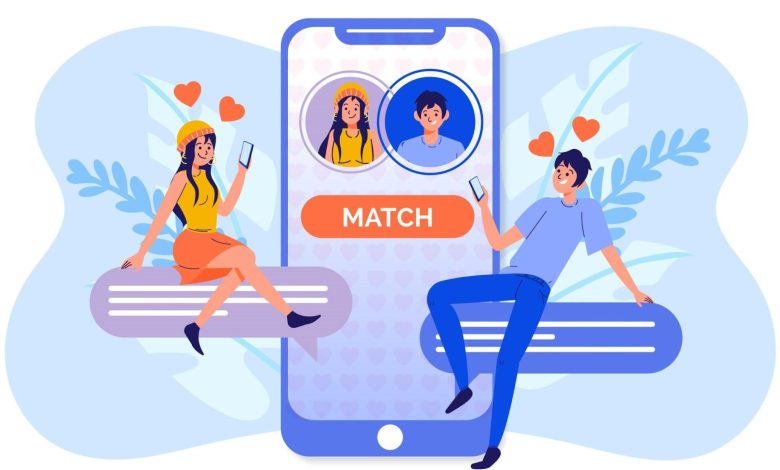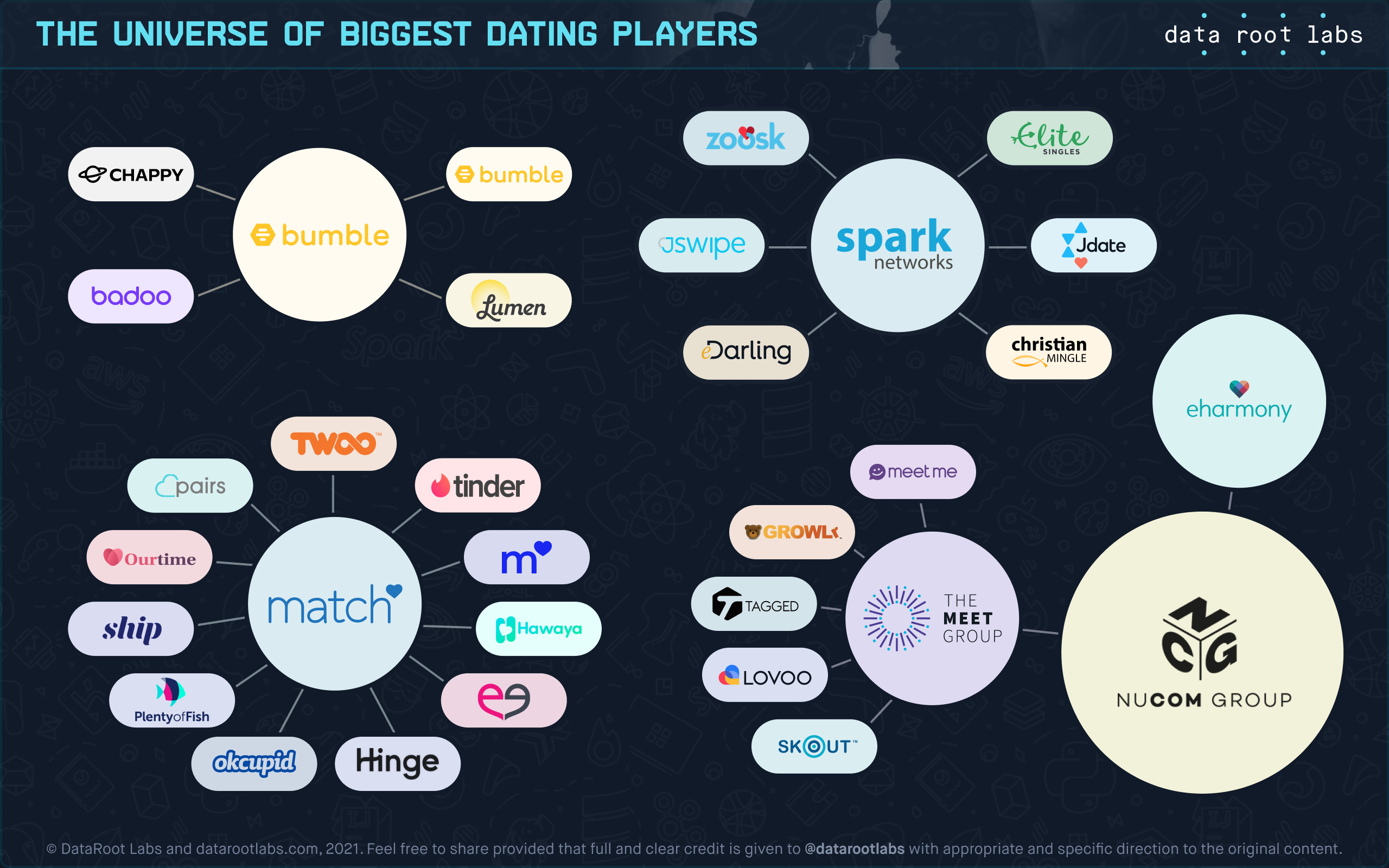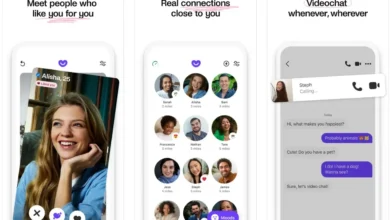Finding Your Perfect Match: How Dating Apps Use Algorithms to Connect Users


Introduction
Overview of dating apps and their use of algorithms
Dating apps have become increasingly popular platforms for individuals seeking romantic connections. These apps utilize algorithms to match users based on various factors such as interests, location, and preferences. The algorithms analyze user data to suggest potential matches, making the process more efficient and convenient for users.
Impact of algorithms on user connections
The use of algorithms in dating apps has both positive and negative effects on user connections. On one hand, algorithms can help users find compatible matches that they may not have crossed paths with otherwise, leading to successful relationships. However, there is also a concern that algorithms may limit the variety of potential matches and create a filter bubble where users are only exposed to similar profiles. Users may also feel pressure to fit into certain algorithm criteria, potentially affecting the authenticity of their connections.

User Profile Creation
Creation of user profiles on dating apps
Dating app users typically create profiles by providing information about themselves such as their age, location, interests, and photos. These profiles act as a reflection of the user's personality and preferences, helping the algorithms suggest potential matches that align with their criteria. Users can also write a bio to further personalize their profile and give potential matches more insight into their personality.
Importance of user preferences and details in algorithm matching
User preferences and details play a crucial role in algorithm matching on dating apps. The algorithms use this information to understand what users are looking for in a potential partner and to recommend profiles that best fit their criteria. By inputting accurate information and preferences, users can increase the likelihood of being paired with compatible matches. It is essential for users to be honest and detailed in their profiles to ensure the algorithm can effectively match them with suitable partners.

Matching Algorithms
Functionality of matching algorithms in dating apps
Dating apps utilize sophisticated matching algorithms to pair users based on their profiles and preferences. These algorithms analyze the information provided by users, such as age, location, interests, and relationship goals, to suggest potential matches that align with their criteria. By constantly evaluating user behavior and interactions, the algorithms improve their accuracy in recommending compatible partners over time. This functionality enhances the overall user experience by increasing the chances of meaningful connections between individuals on the platform.
Factors considered in algorithmic matchmaking
In algorithmic matchmaking on dating apps, several factors are taken into account to determine compatibility between users. These factors may include shared interests, location proximity, age range, relationship goals, and user activity on the app. The algorithms also consider user preferences, such as desired age range or specific interests, to offer personalized match recommendations. By evaluating these factors, the algorithm aims to present profiles that have a higher likelihood of leading to successful interactions and potential relationships.

Machine Learning Technology
Utilization of machine learning technology in dating algorithms
Dating apps leverage machine learning technology in their algorithms to enhance the matchmaking process. Machine learning algorithms analyze vast amounts of user data to identify patterns and trends that can predict compatibility between individuals. By continuously learning from user interactions and feedback, these algorithms adapt and improve the quality of match recommendations over time.
How machine learning improves match accuracy
Machine learning enhances match accuracy by refining the matching process based on user behavior and preferences. Through data analysis, machine learning algorithms can identify subtle correlations and nuances that human matchmaking might overlook. This leads to more tailored and precise match suggestions, increasing the likelihood of users forming meaningful connections. By integrating machine learning technology, dating apps can provide users with matches that are not only compatible on the surface but also have a higher potential for genuine and lasting relationships.

Success Stories
Real-life success stories of users finding love through dating apps
Dating apps have witnessed numerous instances where users have found lasting love through their platforms. These success stories often involve individuals who were matched based on compatibility assessments generated by machine learning algorithms. Users share anecdotes of meeting their perfect partners through the app's match recommendations, highlighting how technology played a crucial role in facilitating these connections. These success stories serve as testimonials to the effectiveness of machine learning in identifying compatible matches and fostering meaningful relationships.
Role of algorithms in successful matches
The algorithms employed by dating apps play a pivotal role in facilitating successful matches by leveraging machine learning technology. These algorithms analyze user data to identify commonalities, preferences, and characteristics that indicate compatibility. By continuously learning and adapting from user interactions, the algorithms refine their match suggestions, increasing the likelihood of users finding genuine connections. The success of these algorithms in fostering successful matches underscores the importance of technology in modern matchmaking practices.

Privacy and Security
Importance of privacy and data security in dating apps
Dating apps prioritize privacy and data security to ensure users feel safe while using their platforms. Protecting sensitive information such as personal details and communication history is paramount in maintaining user trust. By implementing robust security measures, dating apps aim to create a secure environment where users can interact without fear of data breaches or misuse of their information.
How algorithms protect user information
Algorithms in dating apps are designed to safeguard user information through encryption and anonymization techniques. By anonymizing personal data and communication exchanges, algorithms protect user privacy while still enabling accurate matchmaking. These measures help users feel more confident in sharing their preferences and engaging with potential matches, knowing that their data is handled securely.

Ethical Considerations
Ethical implications of algorithmic matchmaking
When it comes to algorithmic matchmaking in dating apps, ethical considerations arise regarding the potential influence on user choices. The use of algorithms to suggest potential matches based on user behavior and preferences raises questions about autonomy and the impact of technology on romantic interactions. Ensuring that algorithms prioritize user well-being and preferences while maintaining transparency in their operation is crucial for addressing these ethical implications.
Balancing user preferences with algorithmic suggestions
One challenge faced by dating apps is striking a balance between user preferences and algorithmic suggestions. While algorithms can enhance matchmaking by considering various factors, including interests and location, it is essential to respect user preferences and avoid overly influencing their decisions. By allowing users to control the extent to which algorithms guide their matches, dating apps can promote ethical practices and empower users to make informed choices in their dating experiences.

Future Trends
Emerging trends in algorithmic matchmaking in dating apps
As dating apps continue to evolve, emerging trends in algorithmic matchmaking focus on enhancing user experiences through personalized recommendations and improved matching accuracy. Developers are increasingly exploring machine learning techniques to analyze user data more effectively and provide better matches based on compatibility metrics. Additionally, incorporating real-time feedback mechanisms to refine algorithms and adapt to user preferences is becoming a prevalent trend in the industry.
Potential developments in technology and user experience
In the future, dating apps are expected to incorporate advanced technologies such as augmented reality for virtual dating experiences and enhanced security features to ensure user safety. Moreover, the integration of artificial intelligence to analyze user behavior patterns and preferences in real-time may revolutionize the matchmaking process. These advancements aim to offer users a more interactive and secure dating environment while leveraging technology to optimize match outcomes.
/cdn.vox-cdn.com/uploads/chorus_asset/file/13743484/image.jpeg)
Future Trends
Emerging trends in algorithmic matchmaking in dating apps
In the realm of dating apps, developers are increasingly focusing on enhancing user experiences through personalized recommendations and improved matching accuracy. They are delving into machine learning techniques to analyze user data effectively, aiming to provide better matches based on compatibility metrics. Additionally, the industry is witnessing the incorporation of real-time feedback mechanisms to refine algorithms and adapt to user preferences.
Potential developments in technology and user experience
Future projections for dating apps include the integration of advanced technologies like augmented reality for virtual dating experiences, and enhanced security features to ensure user safety. Furthermore, the utilization of artificial intelligence to analyze user behavior patterns and preferences in real-time is poised to revolutionize the matchmaking process, offering users a more interactive and secure dating environment while optimizing match outcomes.
Conclusion
Summary of the role of algorithms in connecting users on dating apps
Algorithms in dating apps play a crucial role in connecting users by providing personalized recommendations, enhancing matching accuracy, and adapting to user preferences through real-time feedback mechanisms.
Implications for the future of online dating experience
The future of online dating promises advanced technologies, such as augmented reality and artificial intelligence, to create more interactive, secure, and optimized matchmaking experiences for users.




